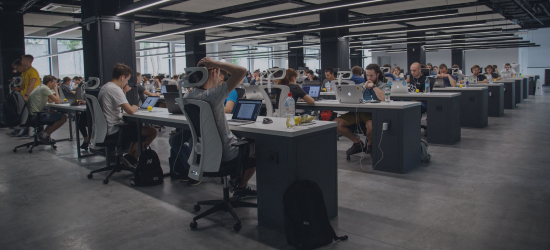
The science of happiness
Happiness depends on a number of things: genes, habits, and what’s going on in our lives at a specific moment in time. Here’s what you can do to be happier.

If CO2 levels in your room are high, you may get tired faster and wake up feeling sleepy the next day. Have you noticed that some people feel out of sorts in the winter? One possible reason is that we close the window when it’s cold out.
Here’s an example. One of our users saw their Energy level measurement drop below 40% for three days in a row. The user asked us to investigate, and what we found was that the CO2 levels in their bedroom were higher than usual. Turns out, the user hadn’t been airing out the room before heading to bed. Mystery solved.
CO2 levels are measured in ppm, or parts per million. CO2 levels affect everyone differently. For example, children are typically more sensitive than adults, but the following guidelines can help assess the air quality in your environment.
Some symptoms of elevated CO2 levels include:

A noisy workspace can impair your ability to focus. There is no recommended noise limit as it all depends on individual preference. Some of us work better in silence, while others might find music helpful for concentration. But if you need a quiet environment while working, you can always use noise-canceling headphones or earplugs. The level of brightness can also impact your work. The recommended lighting level for office spaces is 300-500 lux.
You make more mistakes when it’s cold. A 2004 study by Cornell University professor Alan Hedge showed that office workers made 44% more mistakes when the temperature dropped from 77 to 68 degrees Fahrenheit. The problem is that your body uses energy to keep you warm when you’re cold. This means you have less energy to focus and think.
Finally, low humidity makes breathing difficult and can be dangerous for people with asthma or allergies. A humidifier will help keep dry air away and help you feel better.
Welltory Team, updated on 21 Oct. 2022

Happiness depends on a number of things: genes, habits, and what’s going on in our lives at a specific moment in time. Here’s what you can do to be happier.

Scientists have found out that ergonomic office desks and chairs help to improve overall health, boost productivity and increase concentration. Find out how you can improve your workplace.

Do you often suffer from headaches? Find out what the difference between a headache and a migraine is and check for symptoms.

Self-tracking and lifelogging is a great way to learn more about yourself so you can be healthier, happier, and more productive.
 App Store
App Store
 Google Play
Google Play
 Huawei AppGallery
Huawei AppGallery
 Galaxy Store
Galaxy Store







